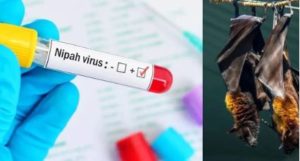
Life is resuming back to normal and restrictions are easing in Kerala as Nipah virus cases decline in the state. For the past weeks, an outbreak of infections due to Nipah virus had led close to schools and educational institutions in Kerala.
Nipah virus is a zoonotic virus and can spread from animals to humans as well as humans to humans. To prevent contracting it, people should avoid eating fruits that may be infected with bats and wash their hands frequently. While the infection is not rapidly spread, it can be deadly once contracted. It can affect lungs and brain, lead to seizures and disorientation and can even cause coma or death. ( Nipah virus outbreak: Top 10 symptoms of the deadly virus; prevention and treatment tips)
“Nipah virus (NiV) is a zoonotic virus that may transmit from animals to humans. It can also circulate through contaminated food or direct contact between people. Fruit bats are the main cause of transmission of this virus. People contracting this virus may undergo severe conditions such as acute respiratory illness and fatal encephalitis. Unlike airborne infections, NiV spreads via bats and pigs. It may turn fatal not only to humans but also to animals,” says Dr. Santosh Kumar Aggrawal, Sr. Consultant, Internal Medicine, Marengo Asia Hospitals Faridabad.
How Nipah affects the body
Nipah virus mainly attacks the lungs and brain. It may also lead to respiratory issues such as cough and sore throat, or even rapid breathing, fever, and gastrointestinal problems like nausea and vomiting.
“In severe cases, it may give rise to encephalitis ( an acute inflammation or swelling of the brain tissue) leading to disorientation or seizures. Encephalitis may even be catastrophic and cause coma or death,” says Dr Aggarwal.
Nipah virus in children can be deadly
Nipah virus infection is rare but can be severe especially in children. They must follow appropriate preventive measures to avoid getting the virus.
“Children can be susceptible to the Nipah virus, can have symptoms similar to adults. However, they may experience a higher risk of severe complications owing to their developing immune systems. Due to weakened immune systems, Niv may affect elderly population severely, requiring hospitalization. Therefore timely medical attention should be given to children and elderly people infected with Nipah. Immediate medical attention and adherence to preventive measures are key to control its spread and minimize its impact,” says Dr Aggarwal.
Preventive tips
Treatment is mainly supportive as there is no availability of specific antiviral therapy. So, preventive measures should be followed adequately:
- Children should refrain from close contact with individuals infected with Nipah virus, especially those with respiratory symptoms or encephalitis.
- Parents should encourage their children to wash their hands with soap and water especially before and after eating, after using the toilet, touching animals and pets, blowing your nose, coughing or sneezing as it helps stop the spread of infection.
- They can use alcohol-based hand sanitizers too if soap and water are not available.
- In endemic areas, children and adults are advised not to consume raw date palm as it can be infected with the virus if bats have access to the sap.
- Children should avoid eating fruits bitten or licked by bats as they may carry the virus.




 Driving Naari Programme launched in Chandigarh
Driving Naari Programme launched in Chandigarh






























